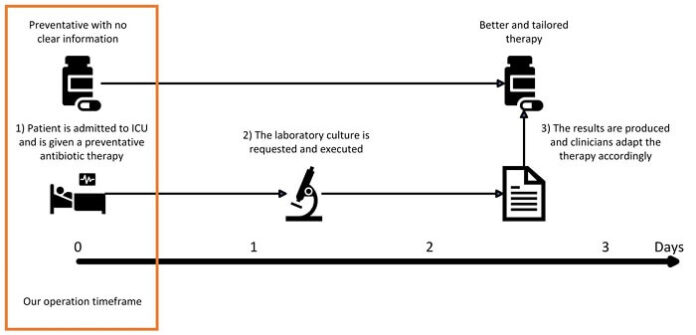

Artificial intelligence (AI) has the potential to deliver same-day assessments of antimicrobial resistance for patients in intensive care units (ICUs), a crucial development in the fight against life-threatening sepsis.
Antimicrobial resistance—where microorganisms evolve defenses against treatment—presents a significant challenge to global healthcare. It is estimated to cause 1.2 million deaths each year worldwide and costs the NHS at least £180 million annually. Bloodstream infections can become resistant to antibiotics, leading to sepsis, a condition that greatly increases the risk of organ failure, shock, and death.
Patients may experience varying degrees of antimicrobial resistance based on factors such as prior antibiotic use, genetics, and diet, which can alter their microbiome.
Researchers from King’s College London and clinicians at Guy’s and St Thomas’ NHS Foundation Trust have collaborated on a groundbreaking study. Their work demonstrates how AI and machine learning can facilitate same-day triaging for ICU patients, especially in resource-limited environments. This technology also proves to be more cost-effective than traditional manual testing methods.
Current diagnostic practices for ICU patients are labor-intensive and can take up to five days, as they involve culturing bacteria in laboratories. This delay can significantly impact the care outcomes for critically ill patients. Rapid access to antimicrobial resistance information would allow healthcare providers to make timely, informed decisions about treatment, including the appropriate use of antibiotics, which is closely linked to better patient outcomes.
Davide Ferrari, the study’s first author from King’s College London, emphasized the importance of their findings: “Our study provides further evidence on the benefits of AI in healthcare, particularly regarding antimicrobial resistance and bloodstream infections. As the NHS invests in shared data resources, this technology has the potential to enhance collaborative and efficient patient care.”
Dr. Lindsey Edwards, a microbiology expert at King’s College London, noted that addressing the urgent threat of antimicrobial resistance requires protecting existing antibiotics, which is directly related to the need for rapid diagnostics. Many patients with drug-resistant infections arrive in critical condition and may not survive long enough for conventional diagnostic methods to identify their infections. Consequently, clinicians often must prescribe broad-spectrum antibiotics without knowing the specific pathogen, risking further resistance.
As reported by medicalxpress, the study analyzed data from 1,142 patients at Guy’s and St Thomas’ NHS Foundation Trust, laying the groundwork for ongoing research involving datasets of over 20,000 individuals. Researchers hope to expand this study into a multi-hospital framework using Federated Machine Learning, which could meet regulatory standards for the real-world application of AI in the NHS.
Professor Yanzhong Wang, a population health expert at King’s College London, highlighted the approach’s simplicity and scalability, suggesting it could be widely implemented to address critical healthcare issues and ultimately improve patient outcomes.























